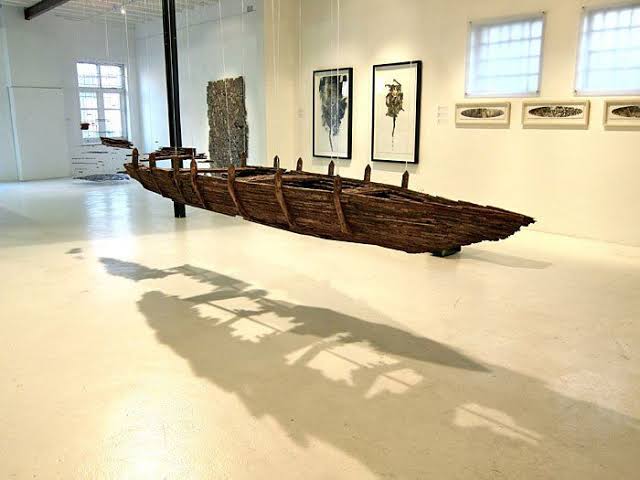A canoe is not an item most of the world is familiar with. And for those who are, it is quite rightly pictured as the unsophisticated dugout vessel accompanied by paddles for water transport.
These days, canoe racing is a fancy sport but the vessel itself is not a popular means of moving on waters, with the probable exception of small fishing communities.
But the ancestors of the modern world relied on canoes, way before knowledge and industry invented bigger crafts for seas and other water bodies.

In what proved to be some confirmation of the ingenuity of the African before anti-black propaganda became pervasive, a canoe, more than 8,000 years old, was found in Nigeria. But the story is surprisingly unknown to many.
In May of 1987, a Fulani herdsman tending to his cattle along the banks of the Komadugu Gana River in northeastern Nigeria chanced upon what showed as part of a boat-like craft logged into the riverbed soil.
But it was not until 1994 that the herdsman’s finding in the Dufuna village received the attention of officialdom in the Fune local government area.
A team of Nigerian and German archaeologists organised a party in that year to dredge up the craft. The whole canoe was dug 5 metres from beneath the earth’s surface.
The craft measured 8.4 metres long, 0.5 metres wide and about 5 centimetres of thick although the wear-and-tear of the years made thickness uneven on all sides of the canoe.
Radiocarbon investigations on charcoal samples in the area placed the canoe around 6500 BC. By virtue of the estimated period, the researchers connected the canoe to the time when Lake Chad was at its largest.
The Dufuna canoe is therefore thought to be at least, 8,000 years old but probably more. This makes the craft the second oldest canoe in known history aside from the 10,000 or more year-old Pesse canoe found in the Netherlands in 1955.
Of course, this finding held sociological relevance. In the least, it proved that certain levels of technological advancement of the peoples of Africa was not as late as certain Eurocentric history books claimed.
The then director of the National Commission for Museums and Monuments of Nigeria, Dr Omotoso Eluyemi, said: “The canoe has shown that people in the Niger area had a history of advanced technology and that they had mastered the three major items of Neolithic culture which included the fashioning, standardization and utilization of tools according to set traditions.”

Dr Eluyemi even added that the finding rivalled the more fancied civilisations of interest in Africa and the Middle East which include Egypt, Mesopotamia, and Phoenicia.
The Dufuna canoe finding was essential to the narrative of how sub-Saharan Africa connected with the rest of the world.
At least, we now have some proof that African history is not simply the activities of Europeans on the continent.










